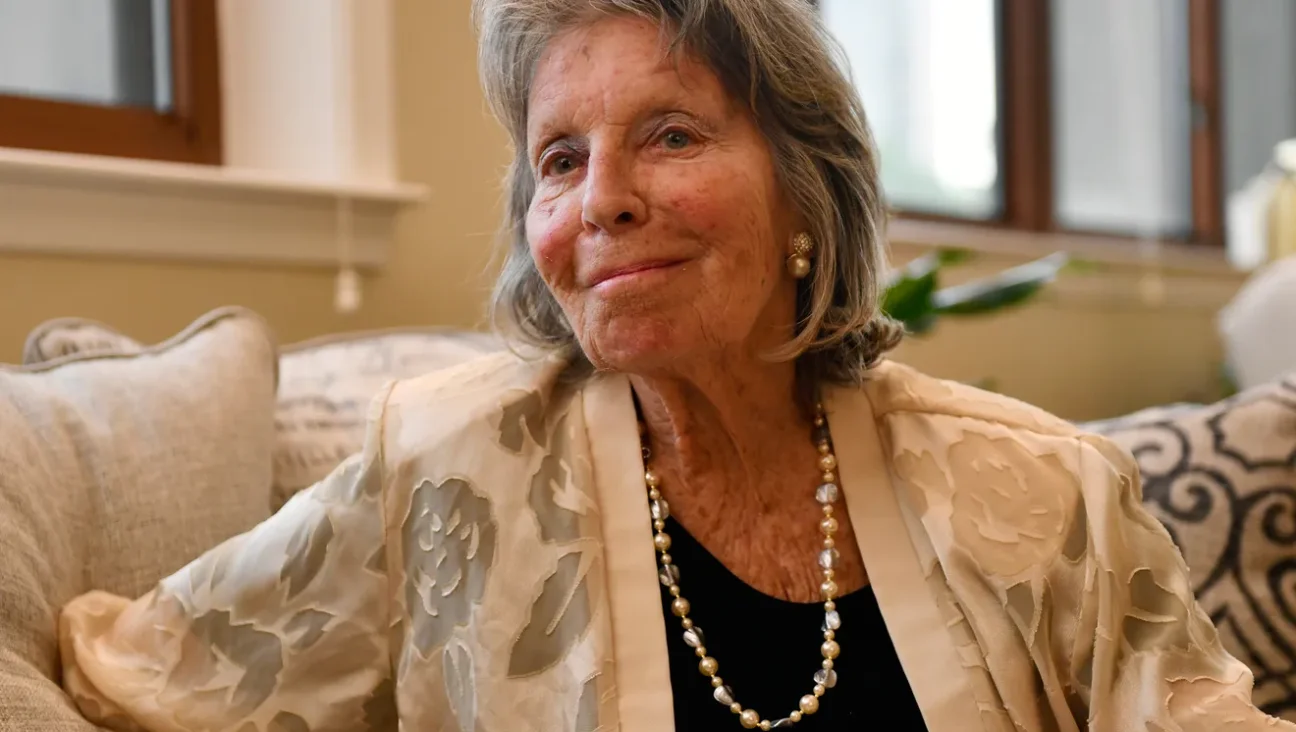Israel Seeks To Raise Profile of African Aid
At a recent symposium promoting Israeli aid to Africa, the Nigerian ambassador to America reflected on what he had learned in his previous post as ambassador to the Jewish state. The greatest lesson he took from those four years, he said, is that self-confidence is the key to a nation’s success.
Africans, he opined, should take a page from Israelis when it comes to believing in their own strength.
“In Africa we are looking for models, and the Israeli model has worked for us,” said Ambassador George Obiozor, speaking Monday afternoon to a packed auditorium at Columbia University, where some 170 students and representatives of Jewish organizations gathered to discuss Israeli and American Jewish efforts to stem famine and disease that plague the poverty-stricken continent.
The conference, “The Global Effort for Africa: Israel & American Jewish Community Initiatives,” is phase one of a wider campaign to put Israel’s work in Africa back on the radar screen. Organized by the Consulate General of Israel in New York and by The Earth Institute at Columbia University, which focuses its research on sustainable development and on global poverty, the forum brought together Israeli officials and American Jewish philanthropic leaders to outline the varying projects they have undertaken in Africa in recent years.
Those efforts, they said, stretch far beyond the campaign to end the genocide in the Darfur region of Sudan — which has captured the media spotlight — and extend to tackling long-term problems in other developing countries, including Malawi, Mauritania and Nigeria.
The point — brought home by the laundry list of African nations where Israelis currently lend expertise in agriculture, water management and health care — is that the Israeli “miracle” of creating a robust agricultural sector in an arid desert can be applied to Africa, which faces similar geologic challenges.
On hand to plug Israel’s work in the world’s second-most populous continent was Ambassador Chaim Divon, director of Israel’s Center for International Cooperation, which is known by the Hebrew acronym Mashav. “This is a time to revamp our activities and mobilize others,” Divon said in an interview with the Forward. “We have not forgotten that we reached our level of development as a result of help, and it’s our obligation to pass on the help and the know-how.” Founded in 1958 by Golda Meir to bring Israel’s technological, medical and educational advancements to the developing world, Mashav sends experts to work in poor countries and invites foreign citizens to attend skill-building training programs in Israel. Mashav was established in part as a strategic bid to win friends — with no dependable superpower allies at the time, Israeli leaders saw the African nations as potential partners in the United Nations and as counterweights to Israel’s hostile Arab neighbors — and in part as an expression of Israel’s moral commitments. A similar equation, Divon said, holds true today.
The push to raise Mashav’s visibility grew to a certain extent from its partnership with famed economist Jeffrey Sachs, director of The Earth Institute. Last January, Sachs wrote an article, published in the journal Sh’ma, that attempted to corral Mashav into joining his efforts to end extreme poverty in Africa.
”It is time for Israel to resume its large-scale aid to Africa, reviving and extending programs that were disrupted by miserable anti-Israeli politics in Africa a generation ago,” Sachs wrote. Israel is now participating in the Ethiopian branch of Sachs’s Millennium Villages Project, which pairs experts from around the globe with needy African communities.
In the 1960s and early ’70s, Mashav was the centerpiece of a massive Israeli foreign aid program directed largely toward Africa. Yitzhak Abt, a former Mashav official, estimated that at its peak, Mashav sent abroad 100 experts at a time to work on long-term projects. In Zambia, Mashav developed an agricultural settlement program for former copper mine workers. In Ghana, Israeli experts helped establish the Black Star Line, the first African-owned ocean liner. And over the years, an estimated 250,000 Africans took part in educational training programs.
But Israel’s relations with Africa soured in the early 1970s before they were completely severed in 1973, in the wake of the Yom Kippur War. As programs ended there, the agency’s funding was slashed and Mashav looked to other parts of the world.
Over the past decade, Mashav again faced deep budget cuts as Israeli administrations sought to rein in government spending. According to a recent article in Ha’aretz by Eli Fried, a scholar at Tel Aviv University, Mashav’s budget has dropped to 3% of the Foreign Ministry budget, down from a one-time high of 34% in 1959-60.
Mashav currently operates on a $15 million annual budget. Even so, Divon said, Israel’s investment in Africa should not be measured in dollar amounts. “It’s the know-how we bring to the table,” he said, “the results of investing hundreds of millions in research and development, and sharing those developments with others” that counts.
A message from our Publisher & CEO Rachel Fishman Feddersen

I hope you appreciated this article. Before you go, I’d like to ask you to please support the Forward’s award-winning, nonprofit journalism so that we can be prepared for whatever news 2025 brings.
At a time when other newsrooms are closing or cutting back, the Forward has removed its paywall and invested additional resources to report on the ground from Israel and around the U.S. on the impact of the war, rising antisemitism and polarized discourse.
Readers like you make it all possible. Support our work by becoming a Forward Member and connect with our journalism and your community.
— Rachel Fishman Feddersen, Publisher and CEO




















